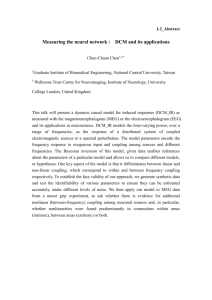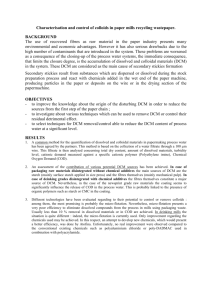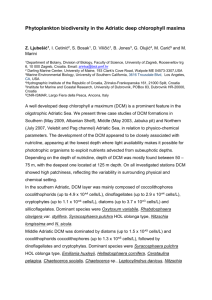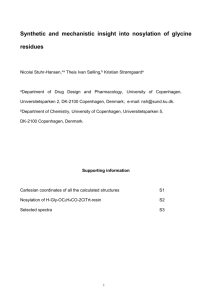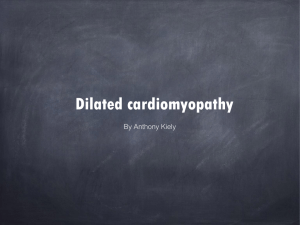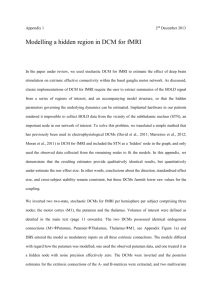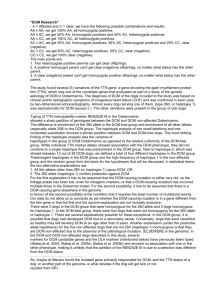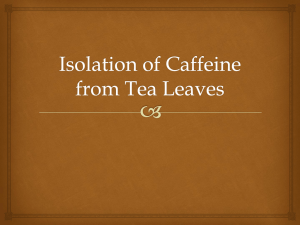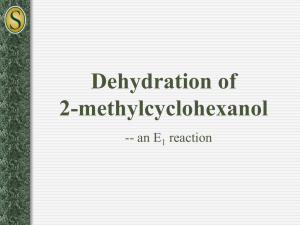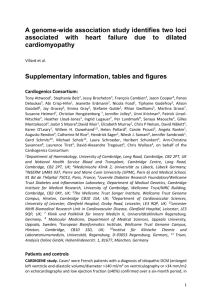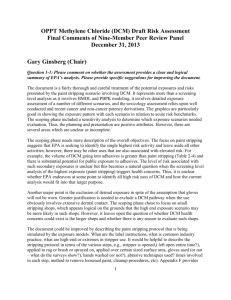Animal Care and Use Program Policies & Procedures Anesthesia
advertisement
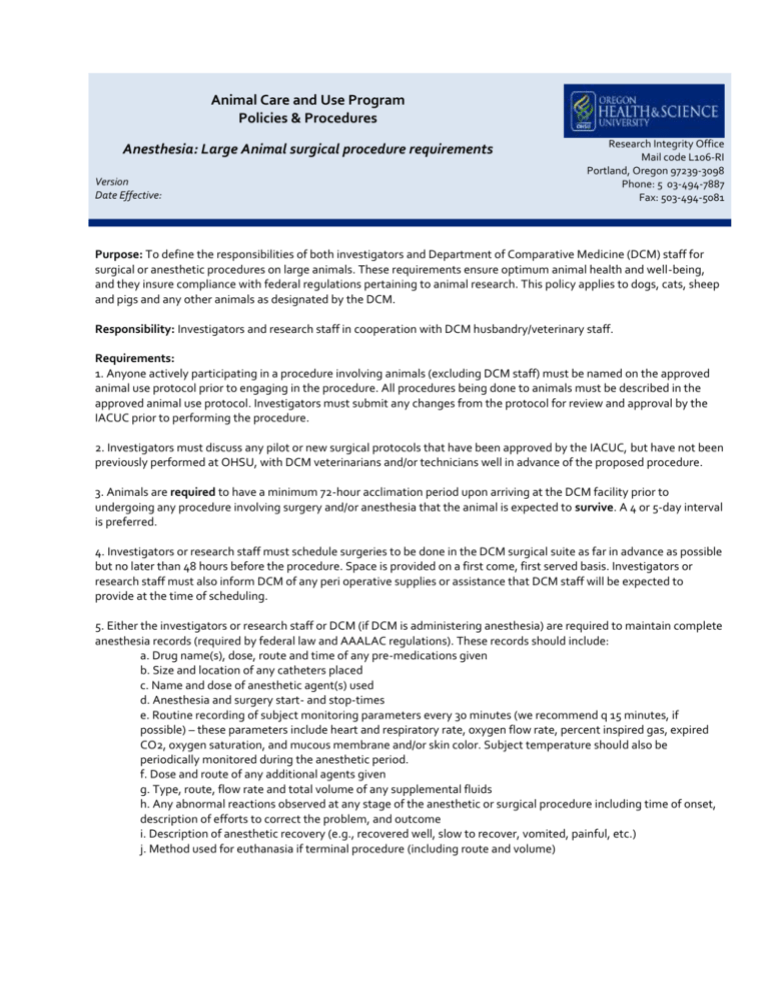
Animal Care and Use Program Policies & Procedures Anesthesia: Large Animal surgical procedure requirements Version Date Effective: Research Integrity Office Mail code L106-RI Portland, Oregon 97239-3098 Phone: 5 03-494-7887 Fax: 503-494-5081 Purpose: To define the responsibilities of both investigators and Department of Comparative Medicine (DCM) staff for surgical or anesthetic procedures on large animals. These requirements ensure optimum animal health and well-being, and they insure compliance with federal regulations pertaining to animal research. This policy applies to dogs, cats, sheep and pigs and any other animals as designated by the DCM. Responsibility: Investigators and research staff in cooperation with DCM husbandry/veterinary staff. Requirements: 1. Anyone actively participating in a procedure involving animals (excluding DCM staff) must be named on the approved animal use protocol prior to engaging in the procedure. All procedures being done to animals must be described in the approved animal use protocol. Investigators must submit any changes from the protocol for review and approval by the IACUC prior to performing the procedure. 2. Investigators must discuss any pilot or new surgical protocols that have been approved by the IACUC, but have not been previously performed at OHSU, with DCM veterinarians and/or technicians well in advance of the proposed procedure. 3. Animals are required to have a minimum 72-hour acclimation period upon arriving at the DCM facility prior to undergoing any procedure involving surgery and/or anesthesia that the animal is expected to survive. A 4 or 5-day interval is preferred. 4. Investigators or research staff must schedule surgeries to be done in the DCM surgical suite as far in advance as possible but no later than 48 hours before the procedure. Space is provided on a first come, first served basis. Investigators or research staff must also inform DCM of any peri operative supplies or assistance that DCM staff will be expected to provide at the time of scheduling. 5. Either the investigators or research staff or DCM (if DCM is administering anesthesia) are required to maintain complete anesthesia records (required by federal law and AAALAC regulations). These records should include: a. Drug name(s), dose, route and time of any pre-medications given b. Size and location of any catheters placed c. Name and dose of anesthetic agent(s) used d. Anesthesia and surgery start- and stop-times e. Routine recording of subject monitoring parameters every 30 minutes (we recommend q 15 minutes, if possible) – these parameters include heart and respiratory rate, oxygen flow rate, percent inspired gas, expired CO2, oxygen saturation, and mucous membrane and/or skin color. Subject temperature should also be periodically monitored during the anesthetic period. f. Dose and route of any additional agents given g. Type, route, flow rate and total volume of any supplemental fluids h. Any abnormal reactions observed at any stage of the anesthetic or surgical procedure including time of onset, description of efforts to correct the problem, and outcome i. Description of anesthetic recovery (e.g., recovered well, slow to recover, vomited, painful, etc.) j. Method used for euthanasia if terminal procedure (including route and volume) A copy of this record (or the original if anesthesia performed by DCM veterinary staff) will be provided on the day of the procedure to DCM and placed in the animal medical record for non-survival as well as survival procedures. Forms can be obtained from DCM. 6. The investigators or research staff must make arrangements with the veterinary staff prior to the procedure to insure that DCM staff is available to administer any postoperative care and monitoring required. If animals will be returned after 2:30pm, DCM veterinarians should be notified directly. 7. The investigator or research staff is required to monitor subjects post-surgically until they are extubated, conscious, and ambulatory (if appropriate to the procedure). If an animal is not sufficiently recovered by 4:00 pm, the investigator or research staff will be responsible for monitoring and treating the animal unless a specific request for DCM services has been made in advance. If DCM will be involved in post-surgical care, the investigator or research staff must provide a postsurgical care plan in writing. This should include: a. Description of any expected complications b. Expected recovery time c. Special housing or feeding requirements or other needed supportive care d. Medications to be administered – drug name, dose, route, frequency and duration of treatment including a pain management plan e. Anticipated survival time f. After-hours contact information Any medications to be given beyond the immediate post-op period will be administered by DCM staff unless DCM is advised that the investigator or research staff elects to do so. The investigator or research staff must record any medications administered in the animal record. The investigator or research staff must contact DCM immediately if an animal experiences complications from the procedure. If DCM staff is required to stay past 4:00pm to monitor post-op animals, an hourly fee will be charged to the PI’s account for services provided. 8. The investigator or research staff is responsible for assessing the animal’s condition for three days post-operatively. This includes obtaining a body temperature, taking heart and respiratory rates, inspecting the incision site(s), noting food and water intake, and evaluating overall condition (i.e., if the animal is Bright, Alert, and Responsive [BAR], depressed, exhibiting signs of pain, etc.). For sheep, auscultation of the rumen to confirm GI motility is also recommended. The investigator or research staff must record these observations in the animal’s medical record in a format consistent with USDA and DCM standards. The investigator or research staff must immediately report any abnormalities to the DCM veterinary staff. If, during the exam, the animal is resistant and you are unable to obtain these observations, please note this in the animal record. DO NOT overly stress an animal to obtain these observations. At a minimum record appetite, activity level, and a description of how any incisions are healing. DCM can provide the post-operative daily assessment service for a fee if requested. 9. The investigator or research staff must record any treatments including medications given or manipulations done (e.g., bandage changes, fluid administration, etc.) in the animal medical record. All members of the research staff that provide animal care should be properly trained to perform the task. Species' variations may require special attention. 10. Contact DCM @ 494-8425 with additional questions or concerns
